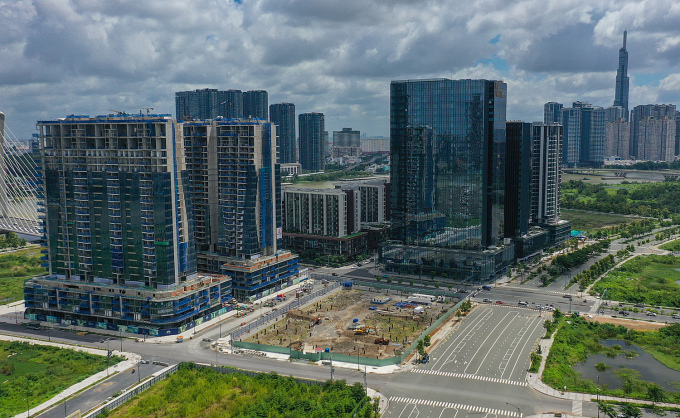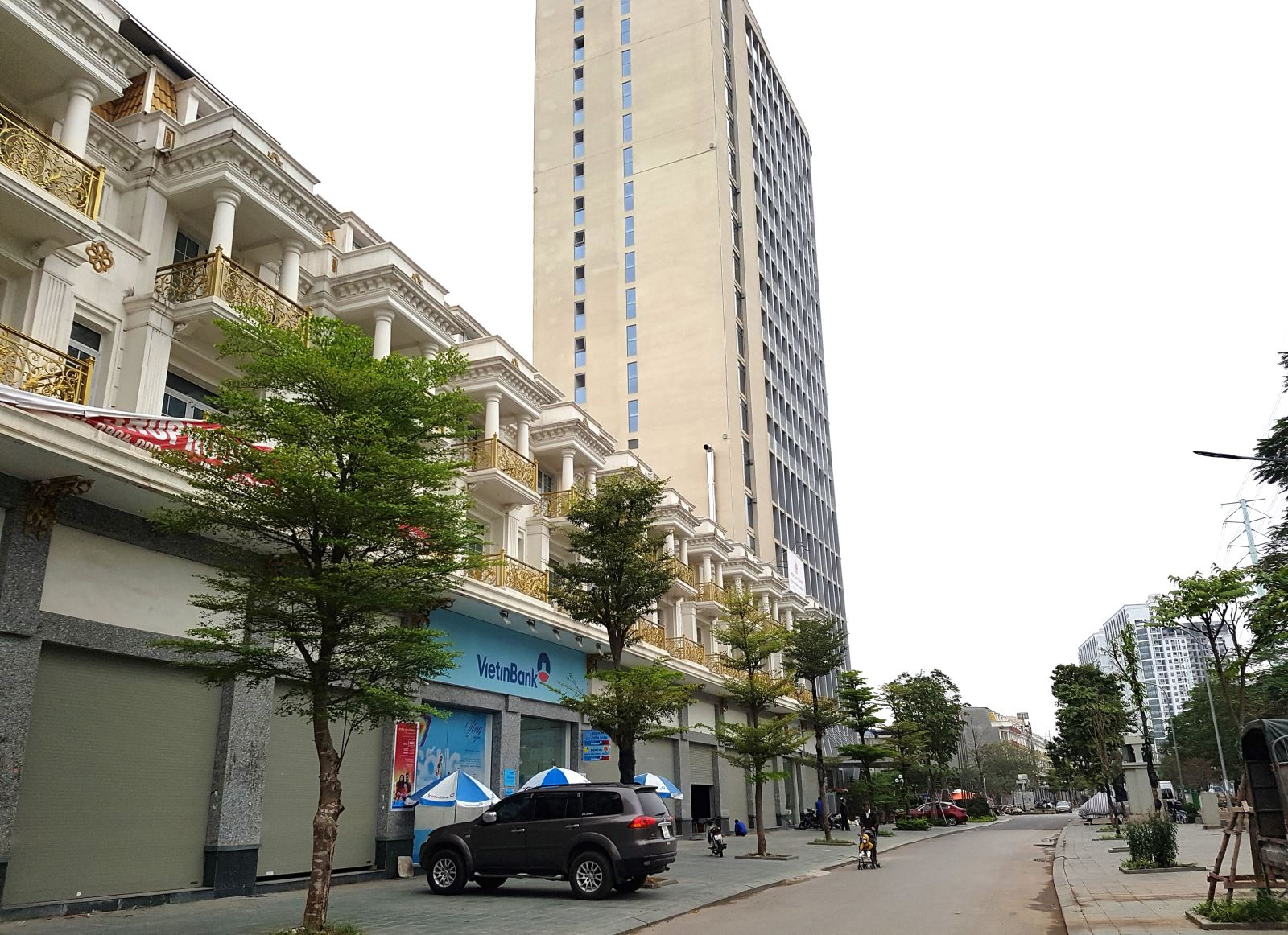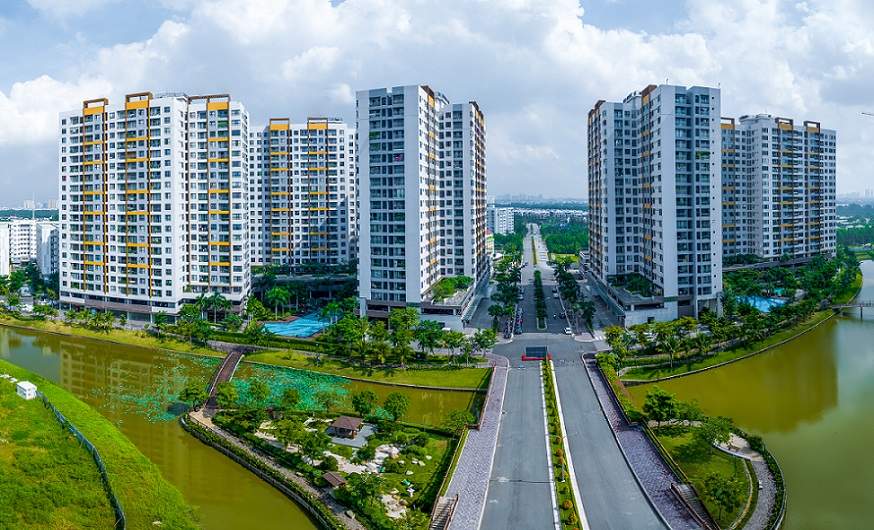Real Estate Market Hits Bottom
Mr. Can Van Luc and numerous experts believe that the real estate market has overcome its toughest phase and forecast a recovery beginning in early 2024.
"The opportunities in the market are now more abundant than the challenges because the real estate sector has overcome its most difficult period," said Mr. Can Van Luc, an economic expert and a member of the National Financial and Monetary Policy Advisory Council, at the first autumn real estate forum on September 28.
According to Mr. Luc, the current real estate market has recovered by 20-30% compared to its peak in 2021. This is reflected in the State Bank of Vietnam's four interest rate reductions, resulting in a gradual decline in deposit and lending interest rates. Many policies have been introduced to support businesses and individuals, such as debt restructuring and preferential credit packages for social housing.
Moreover, fiscal policies continue to expand to ease, defer taxes, reduce fees, and support businesses in overcoming cash flow and liquidity challenges. In 2023 alone, around 200 trillion VND in taxes will be exempted, reduced, or deferred, equivalent to about 78 trillion VND in actual state budget expenditure.
"These are unprecedented policies for businesses, including those in the real estate sector," Mr. Luc stated.
According to experts, the maturity dates of certain bonds fall in March 2024, but the pressure remains manageable as businesses actively buy back, extend, or postpone bond repayments. Additionally, inflation and interest rates are trending downward, facilitating the central bank's monetary policy relaxation. As of the end of August, inflation remained at 4.6%, and overnight interest rates decreased almost to the level of early 2021. Meanwhile, capital continues to flow steadily into real estate. Credit for real estate has increased by nearly 5%, closely mirroring the growth rate of the entire economic system. The real estate sector also ranks second in attracting foreign direct investment (FDI), with a total investment of nearly $2 billion, representing nearly 10% of FDI.

Sharing a similar view, Mr. Nguyen Van Dinh, Chairman of the Vietnam Real Estate Brokers Association, stated that the market has seen positive developments. Starting from the second quarter, some projects have returned to the market with approximately 3,700 successful transactions, whereas in the early part of the year, the housing supply remained stagnant, and there were only slightly over 1,000 transactions.
Notably, data from the Real Estate Brokers Association for July and August showed more than 5,000 successful transactions, with 70% coming from the apartment segment. Housing supply is gradually increasing, with over 300 projects released nationwide, primarily consisting of existing projects. Many developers have restructured their products and adjusted prices to align with market trends and buyers' affordability.
"If at the beginning of this year, many developers had to withdraw their projects because they feared no one would buy, then starting from the third quarter, confidence from developers and investors is growing," Mr. Dinh stated.
Experts predict that the market will show positive signs of recovery from early 2024.
Mr. Can Van Luc forecasts that the Vietnamese economy will grow by nearly 6% in the third quarter and around 7.5% in the fourth quarter. In particular, the real estate market will perform even better from the beginning of the first quarter of 2024. The BIDV chief economist believes that early 2024 will be an opportune time for investment decisions, as interest rates decline, and real estate prices are adjusted reasonably.
Associate Professor Dr. Dinh Trong Thinh suggests that the market will undergo significant changes from late the first quarter to early the second quarter of 2024 when the supply of social housing increases. He noted that the market is continuing to restructure in various segments, particularly in high-end housing and resort properties. Developers are concentrating their resources on viable projects to bring them to market quickly and boost cash flow. Notably, the social housing construction plan, aimed at building one million social housing units, has contributed to accelerating market restructuring and innovation since late 2022. Over 400 social housing projects have been implemented, providing an opportunity for market recovery.

The report from the Vietnam Real Estate Research Institute also forecasts a V-shaped recovery trend from mid-2024 onward. During the recovery phase from 2024 to 2026, the supply of apartment buildings is expected to increase by an average of 20-25% per year. In Hanoi and Ho Chi Minh City, the supply of apartment buildings from 2024 to 2026 is expected to reach 70,000-85,000 units per year, similar to the pre-pandemic period.
However, experts acknowledge that the market will face challenges from 2023 to 2030 due to the absence of a national long-term real estate market development strategy until 2030. These long-term challenges require solutions related to policy mechanisms, overlapping legislation, capital sources, inflation pressure, rising interest rates, urban planning, infrastructure quality, market information systems, and human resource quality.
Source: VnExpress








